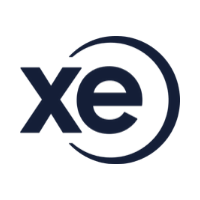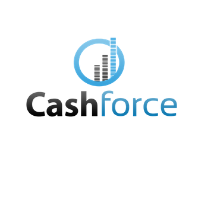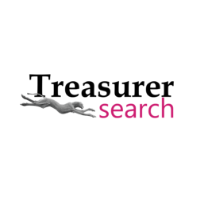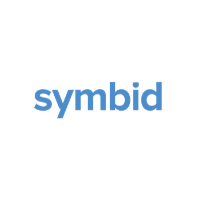| 23-09-2020 | Carlo de Meijer | treasuryXL
Early July I wrote my blog Blockchain and Interoperability: key to mass adoption. There I concluded that “we may say that blockchain seems to be at the threshold of widespread acceptance and adoption”.

This conclusion was confirmed by Deloitte’s Third ‘Global Blockchain Survey 2020’ studying the investment and development trends in blockchain technology. This Survey showed that attitudes toward blockchain have obviously, and measurably, shifted in a positive way. It showed progress in the adoption and implementation of real-world blockchain solutions across a variety of businesses and sectors. Organizations have increased their investments, demonstrating their commitment to blockchain technology. But what about COVID-19?
Deloitte 2020 Global Blockchain Survey
Deloitte’s 2020 Global Blockchain Survey shows the results of a poll amongst almost 1500 senior executives and practitioners from 14 countries that was conducted between February 6 and March 3 this year. Those interviewed had at least a “broad understanding of blockchain, digital assets, and distributed ledger technology (DLT)”.
Main findings
The Survey observed a change in attitudes towards blockchain, with more positive feedback. One of the main conclusions was that blockchain is “solidly entrenched in the strategic thinking of organisations”.
According to the Survey “organizations appear to be more committed than ever” to blockchain. Compared to Deloitte’s 2019 Global Blockchain Survey, there was a significant increase in the interest and implementation of blockchain across businesses. This is further confirming blockchain’s maturity as a valid solution for many institutions and enterprises.
Blockchain already is an integral and vital tool upon which—and with which—new, innovative solutions are being created, and the Survey shows confidence amongst respondents that blockchain solutions will gain even greater traction within the global business community over the next 12 to 24 months.
General consensus, as a key takeaway from the report, was around acceptance of blockchain’s scalability, which continues to increase. 88% believe blockchain is highly scalable and will eventually become mainstream.
Strategic priority for organisations
But let’s look somewhat deeper into the various results. One of the main conclusions is that blockchain technology is increasingly becoming a true strategic priority for organisations. This was affirmed by 55% (2019: 53%) of respondents saying blockchain is critical and in their top-five strategic priorities, with 66% of executives forecasting investments of $1million or more in the next 12 months.
More than four in five respondents (83%) in the Deloitte Survey believe they will lose competitive advantage if they don’t adopt blockchain (2019: 77%). 63% said it was vital to move forward in the blockchain space.
Blockchain initiatives: real-world use cases
In terms of applications, increased advances of large-scale blockchain initiatives are occurring, such as blockchain-based financial infrastructure to simplify global money movement and commerce, as well as distributed ledger technology (DLT) for trade finance and blockchain track-and-trace platforms, among others.
The Survey also revealed increased blockchain initiatives in daily processes. These smaller-scale examples of blockchain adoption, such as title transfer and protection, patient data storage and retrieval, and more efficient voting or food sourcing tracking are “proving to be just as transformational in the way people live and the way work gets done”, according to the Survey.
Adoption of blockchain-based solutions
Adoption of blockchain-based solutions is increasing across organisations, with technology, media and telecommunications (TMT), financial services and non-food manufacturing industries leading the trend.
The number of companies around the globe now driving to intensify their blockchain (and digital asset) integration is speeding up according to the recent Survey. As to what drove them to innovation, 86% of respondents cited their executive teams saying that there are compelling business cases for the use of this technology.
This year, almost twice as many firms surveyed have integrated blockchain solutions compared to 2019. The Survey discovered that 39% of respondents had already implemented blockchain into their operations (2019: 23%), clearly showing this technology is gaining traction. The production figure was even higher at 46% for organizations with more than $1 billion in revenues.
When it comes to preparations for a blockchain-based future, 82% of respondents said they are already hiring new staff with blockchain expertise or plan to do so within the next 12 months (2019: 73%).
Where are corporations using blockchain?
According to the Survey, the top five use-cases for blockchain mentioned by the respondents include digital currencies (33%), data access and sharing (32%), data reconciliation (31%), identity protection (31%), and payments (30%), while track- and trace and asset protection, were adopted by between 27% and 33% of respondents.
Proliferation of digital assets
An interesting part of the Survey is the growing acceptance of digital assets. The Survey unveils the growing role and evolution of digital assets in the near future. 70% of respondents consider the pace of regulatory changes for blockchain and digital asset solutions as very or somewhat fast.
“Digital assets are now enabling enhanced commercialisation models across industries and geographies.” Deloitte Survey
Nearly 89 per cent of those surveyed believe that digital assets will be very or somewhat important to their industries in the next three years.
“Our survey confirms what we see in the marketplace — a proliferation of digital assets used as a means of exchange, a store of value, digital representations of specific assets, or equity in a company,” Rob Massey, partner, global and US tax leader for blockchain and digital assets, Deloitte Tax LLP
Digital assets can be used for a variety of purposes. Respondents who considered digital assets in their business models were most focused on enterprise controlled (64%) followed by general asset-backed (63%), while cryptocurrency comes at number three, with 59%.
A majority of respondents from each country, 83% of the respondents (and even 94% in China) said they strongly (or somewhat) believe digital assets will serve as an alternative to, or even replacement for, fiat currencies in the next five to ten years.
“While our survey revealed great faith in digital assets’ future importance, it shows no clear or specific consensus about exactly how those assets will be used or the specific role they will play—a kind of incoherence that we have seen in blockchain use cases in the past and today,” Survey
A vast majority of respondents expressed confidence that they will meet their regulatory burdens. Some 80% claimed to be very or somewhat prepared to deal with the regulatory aspects of digital assets (KYC, Tax, GAAP/FAS, etc.).
Other areas
The Survey also deep-dived into the issues of global digital identity and consortia and governances.
The Survey explored the use of global digital identity. 90 % of respondents believe global identity will be very or somewhat important in their future blockchain and digital assets strategies. Among the applications of digital identity, global financial transactions (29%) and data privacy (27%) stand to benefit the most.
The 2020 Survey studied the issues faced by enterprises when joining a consortium. It revealed leadership perspectives around joining consortia and an increased understanding of the benefits of consortia to help address regulatory and other complexities of implementing blockchain.
These same leaders thereby shared concerns about how consortia are run, how decisions are made, and how profits are shared across memberships. The most prominent challenges for 41% of the respondents of joining a consortium were the inability or incompetence to create fair and balanced governance rules and poorly defined roles and responsibilities of members.
These concerns can be exacerbated further based on geographic, namely cross border, and industry-specific governance. I described that in detail in one of my earlier blogs “Blockchain consortia need good governance: but how?”.
Blockchain and the regions
While global adoption has increased, blockchain adoption proved to be uneven in different countries. Countries’ averages are varying wildly whereby China turned out to be one of the biggest supporters of blockchain and digital assets.
While in China 59% of the respondents stated that their companies have already incorporated blockchain into production, this figure is almost twice as small (31%) in the US. The APAC region stood at 53%. Other countries are also outpacing America in terms of blockchain integration. Throughout the European Union including the United Kingdom, blockchain is witnessed as a matter of priority with multiple approaches.
Countries worldwide also follow multiple approaches. Asia Pacific responses revealed a widespread recognition of blockchain’s strategic value, while China expressed concerns over cross-border implications. Germany exhibited substantial activity around crypto regulation.
The UK market is seeing ongoing and increasingly mature activity across key sectors with several substantial projects now live, typically among industries reliant on complex, multiparty, and international supply chains. UAE is evolving as a digital assets hub with a consistently growing ecosystem. While Israel is emerging as a leader in blockchain innovation.
Sceptics
However, sceptics about blockchain remain. It is important to note that 54% of respondents said that blockchain is overhyped, compared to last year’s 43%. This has all to do with remaining barriers. The respondents claim there are still a number of organisation or project barriers that prevent them from adopting and implementing blockchain.
According to the Survey the top barriers of blockchain adoption include: implementation: replacing or adapting an existing legacy system (35%), concerns over sensitivity of proprietary information (34%), potential security threats (34%) an lack of regulatory clarity.
As companies develop use cases and adopt digital assets, the most significant problem areas are new tax and regulatory compliance structures. A patchwork approach, different regulatory treatments, or improperly defined parameters could threaten the underlying advantages of these blockchain solutions. But companies are not impressed by this, and some 80% claimed they were prepared to deal with regulatory aspects of digital assets.
Along with regulatory uncertainty, 58% of respondents said cybersecurity was also impacting their blockchain and digital asset strategy. Meanwhile, 21% said cybersecurity was the only hindrance to advancing their strategy.
But what about the impact of COVID-19?
According to the KPMG COVID-19 Survey that was published in August, blockchain investments fell by 63% because of COVID-19. The report compiled by KMPG International and HFS Research, is drawing on a survey of 900 technology executives from different organizations on the Forbes Global 2000 list of the largest companies in the public that have more than $1 billion in annual revenue.
According to the report roughly 40% of the executives indicated that they had moved to entirely cease investment into the emerging technology initiatives. Distributed ledger technologies (DLT) slid from the largest emerging technology sector with an average investment of $18 million in March/April, to the second smallest with $6.5 million in May/June.
7% of the executives said COVID-19 had significantly changed strategic priorities for emerging technologies. In the earlier survey, the priorities were cost reduction and improved brand value. Since May/June, emerging technologies are now assessed based on survival.
The report also found that 59% of the executives believe that the pandemic created an impetus to accelerate digitization initiatives. After the heavy funding cuts for blockchain that occurred in 2020, global companies are looking forward to the technology as a way to regain a competitive advantage in the business landscape after the Corona crisis. They predicted that blockchain will be one of the five emerging technology sectors that will see increased investments from enterprises over the next 12 months.
Blockchain won’t be cut across the board. Projects that are close to production or already live are less likely to be put on hold if they can show reasonably quick returns. Blockchain tools that can help improve a company’s visibility into its own supply chain are the sorts of candidates that could attract budget. Applications that combine blockchain with other more “survival oriented” emerging technologies could also do better.
Blockchain is a reality already!
The Corona-crisis will undoubtedly have negative impact on blockchain for some time. Companies will turn their interest towards less ambitious, more targeted projects.
But the substantial portion of respondents of the Deloitte Survey who already have blockchain in production in their organization highlights the growing maturity. There is however still substantial work to be done. The report does note that “it remains an iterative process, with bumps remaining in the road”.
“As companies adopt and implement blockchain solutions, and as leaders increasingly accept blockchain as a fact rather than a future breakthrough, there remains an underlying level of uncertainty about current and future applications of blockchain technologies.” “We don’t expect that organisations will sort this all out right away – this process will continue to take time, depending on industry, maturity, risk tolerance, and budgets.” Deloitte Survey
But the sentiment at companies towards blockchain has definitely changed. This technology is increasingly becoming a reality for many of them, not just in the future but already!

Carlo de Meijer
Economist and researcher
Source

















